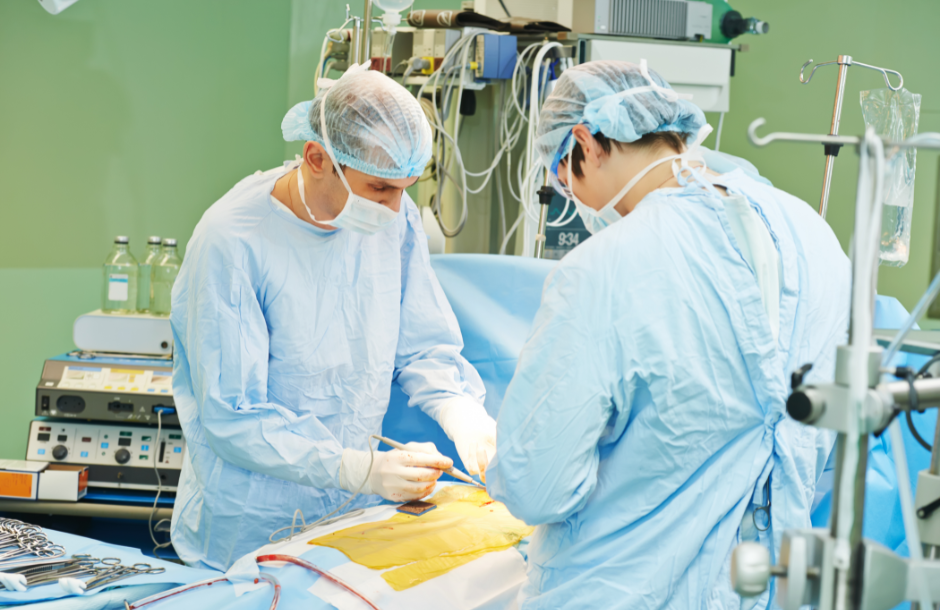MICS vs Traditional Cardiac Surgery: Benefits, Success Rate & Recovery Explained

Heart surgery has advanced tremendously over the past two decades. What once required large incisions, prolonged hospital stays, and lengthy recovery is now being performed through smaller cuts, faster techniques, and safer procedures. One of the most significant innovations in this field is MICS – Minimally Invasive Cardiac Surgery.
But how does MICS compare to traditional open-heart surgery? What are the benefits, risks, and success rates of each? In this article, Dr. Vaibhav Mishra, Senior Consultant and one of the leading cardiac surgeons in Delhi, explains the difference between the two approaches and why MICS is increasingly becoming the preferred choice for patients worldwide.
What is Traditional Cardiac Surgery?
Traditional cardiac surgery, often referred to as open-heart surgery, involves making a large incision (typically 8–10 inches) in the middle of the chest by cutting through the breastbone (sternotomy). This gives surgeons full access to the heart for procedures such as:
- Coronary Artery Bypass Grafting (CABG)
- Valve repair or replacement
- Aortic surgery
- Congenital heart defect repair
Key Features of Traditional Cardiac Surgery:
- Large chest incision.
- Longer hospital stay (7–10 days).
- More postoperative pain.
- Higher risk of infection due to the sternum being cut.
- Recovery period of 6–8 weeks or longer.
Despite these limitations, traditional cardiac surgery remains highly effective and is still widely performed in complex cases.
What is MICS (Minimally Invasive Cardiac Surgery)?
MICS is a modern surgical technique that allows cardiac surgeons to perform heart procedures through small incisions (2–4 inches), usually between the ribs, without cutting through the breastbone. Specialized instruments and high-definition cameras help surgeons perform precise procedures with minimal trauma.
Common Procedures Done with MICS:
- Mitral valve repair and replacement.
- Aortic valve surgery.
- Coronary artery bypass surgery (selected cases).
- ASD closure and other congenital heart defect repairs.
Key Features of MICS:
- Tiny incision (keyhole approach).
- No cutting of breastbone.
- Less pain and scarring.
- Shorter hospital stay (3–4 days).
- Faster return to normal life (2–3 weeks).
Benefits of MICS vs Traditional Cardiac Surgery
- Incision Size & Cosmetic Outcome
- Traditional: Large 8–10 inch scar down the chest.
- MICS: Small 2–4 inch incision, often hidden between ribs, resulting in minimal scarring.
- Pain & Discomfort
- Traditional: More painful due to sternum cutting.
- MICS: Less painful as no bones are cut.
- Risk of Infection
- Traditional: Higher risk due to open chest wound.
- MICS: Lower risk because incisions are smaller.
- Hospital Stay
- Traditional: 7–10 days.
- MICS: 3–4 days.
- Recovery Time
- Traditional: 6–8 weeks.
- MICS: 2–3 weeks.
- Cosmetic Appearance
- Traditional: Large visible scar.
- MICS: Minimal scarring, especially important for younger patients.
- Return to Work/Normal Life
- Traditional: 2–3 months.
- MICS: 2–4 weeks.
Success Rate: MICS vs Traditional Surgery
Both MICS and traditional open-heart surgery are highly successful when performed by experienced cardiac surgeons.
- Traditional Surgery Success Rate: 95–98% (depending on patient’s condition and procedure).
- MICS Success Rate: Comparable success rates of 95–98%, with added benefits of faster recovery and less trauma.
According to multiple studies, MICS offers similar clinical outcomes as open surgery but with significantly better patient satisfaction, reduced hospital costs, and quicker recovery.
Why Choose Dr. Vaibhav Mishra for MICS in Delhi?
Dr. Vaibhav Mishra is a Senior Cardiac Surgeon at Max Healthcare, Delhi, with extensive experience in performing both traditional cardiac surgeries and advanced minimally invasive techniques like MICS.
Why Patients Trust Him:
- 15+ years of experience in cardiac surgery.
- Expertise in complex valve and bypass surgeries.
- Among the few surgeons in India trained in advanced minimally invasive procedures.
- Patient-centric approach with personalized care.
- Excellent surgical outcomes with high success rates.
When is Traditional Surgery Preferred Over MICS?
While MICS has clear benefits, not all patients are suitable candidates. Traditional surgery may still be preferred in:
- Complex multi-vessel coronary artery disease.
- Re-do surgeries where sternotomy is safer.
- Severe cardiac conditions requiring full access.
- Emergency surgeries.
Life After Surgery: What to Expect
After Traditional Cardiac Surgery:
- Longer hospital stay.
- Physical restrictions (lifting, driving, exercise) for 6–8 weeks.
- More visible scarring.
After MICS:
- Quicker mobility.
- Return to work within weeks.
- Minimal cosmetic concerns.
- Enhanced quality of life sooner.
Frequently Asked Questions (FAQs)
- Is MICS as safe as traditional open-heart surgery?
Yes. Studies show MICS is as safe and effective as open-heart surgery when performed by skilled surgeons.
- Does MICS cost more than traditional surgery?
The cost may be slightly higher due to advanced technology, but shorter hospital stays and faster recovery often balance the expenses.
- Who is not suitable for MICS?
Patients with complex, multiple-vessel blockages or those requiring emergency surgery may not be ideal candidates.
- How soon can I walk after MICS?
Most patients can start walking within 24–48 hours post-surgery.
- Will I need lifelong medicines after MICS?
Like traditional surgery, your doctor may prescribe medicines depending on your condition.
Conclusion
Both MICS and traditional cardiac surgery are effective in treating heart conditions. The key difference lies in the patient experience — MICS offers smaller incisions, less pain, faster recovery, and better cosmetic results, while traditional surgery remains necessary in certain complex cases.
If you’re exploring MICS in Delhi, consulting an experienced surgeon like Dr. Vaibhav Mishra at Max Healthcare ensures that you receive the safest and most effective treatment tailored to your condition.
Book an appointment today with Dr. Vaibhav Mishra and take the first step towards a healthier heart.
